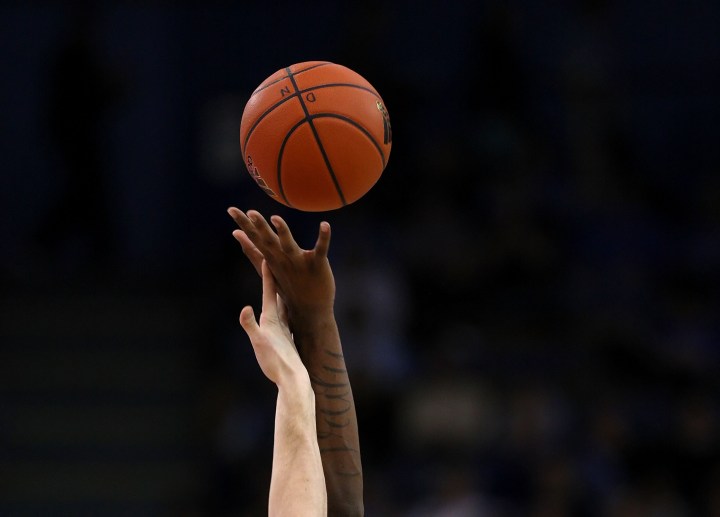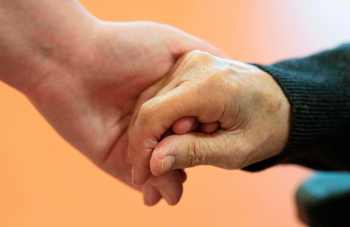
Is the “hot hand” phenomenon all in our heads?

Time for March Madness — the time of year when the 68 best teams in men’s and women’s college basketball battle for the title of champion in their leagues. Fans can’t wait for those jaw-dropping moments when a player demonstrates a “hot hand” and seems unstoppable — so long as he or she isn’t scoring points against the team they’re rooting for.
Yet, for a long time, social scientists believed the hot hand was a fallacy, a case of “massive and widespread cognitive illusion.”
Marketplace senior economics contributor Chris Farrell spoke with “Marketplace Morning Report’s” David Brancaccio about whether the hot hand phenomenon is all in our heads. The following is an edited transcript of their conversation.
David Brancaccio: So some big shots dismissed the hot hand theory?
Chris Farrell: Here’s the thing. You might think, when you watch Michael Jordan or Steph Curry and they’re on a roll, “Boy, they have the hot hand.” But there was a series of studies that said, “No, they’re just lucky.” Probably the most famous is from 1985. It’s three psychologists, including Amos Tversky, and their paper argued that a string of scores was no different than simply flipping coins. What they said is that sports fans were suffering from widespread cognitive illusion.
Brancaccio: And this made at least one famous coach grumpy, right?
Farrell: Oh, very grumpy. He said: “Who is this guy? So he makes a study. I couldn’t care less.” That was Red Auerbach, the legendary coach for the Boston Celtics. But these hot hand studies, sort of fallacy studies, they became the classic example for experts to say, “There’s something you think you know, but you really don’t.” It was called the hot hand fallacy — until it wasn’t.
Brancaccio: Now, there’s a new book from a Harvard guy about this.
Farrell: Steven Pinker at Harvard University. His new book, “Rationality,” he calls it the hot hand fallacy fallacy.
Brancaccio: So people do get on streaks, according to the Harvard analysis?
Farrell: Yes. And there’s some really subtle statistical bias reasons why people are rethinking these studies, but here’s the bottom line: Athletes aren’t roulette wheels. They have memory, and it’s reasonable to assume that success on earlier shots just might feed on itself in some circumstances. And there are more and more studies that have come to that conclusion.
Brancaccio: Yeah, as opposed to coins. Now, this is fun — I’d call it recreational economics or something — but the hot hand debate is a reminder about something bigger.
Farrell: Much bigger. So behavioral economists and behavioral financiers look at the market and they’ve used the hot hand fallacy to say, “Look, we make all kinds of cognitive mistakes in the market.” And people who are pushing back [with] the hot hand fallacy fallacy are saying, “No, you want to look more at the underlying incentives.” That people may be behaving rationally — it may be a stupid thing that they’re doing — but there are incentives that are pushing them in a certain direction.
Correction (March 18, 2022): The original version of this story misidentified Amos Tversky.
There’s a lot happening in the world. Through it all, Marketplace is here for you.
You rely on Marketplace to break down the world’s events and tell you how it affects you in a fact-based, approachable way. We rely on your financial support to keep making that possible.
Your donation today powers the independent journalism that you rely on. For just $5/month, you can help sustain Marketplace so we can keep reporting on the things that matter to you.

















